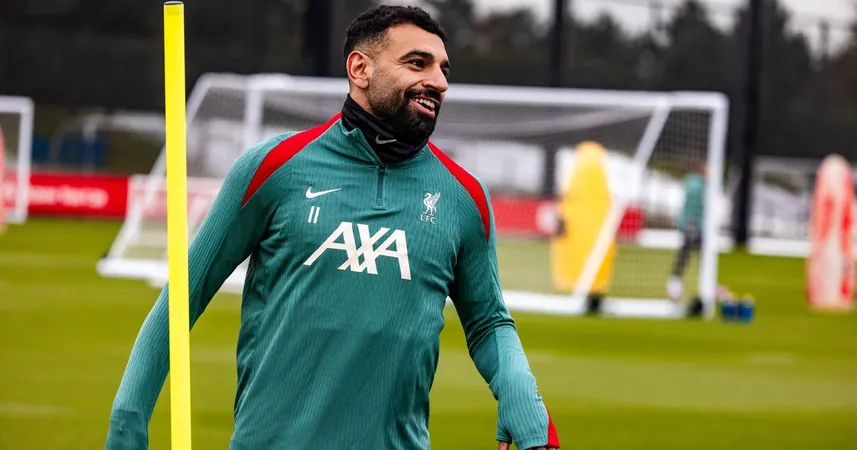
Premier League's APT Rule Overhaul: What It Means for Clubs and Manchester City
2024-11-22
Author: Rajesh
Introduction
In a significant move that could reshape the landscape of sponsorship deals in English football, the Premier League has officially unveiled changes to its Associated Party Transaction (APT) rules. This decision follows a decisive vote among club representatives, sparked by a legal challenge from none other than Manchester City.
Context of APT Rules
The APT rules come into play for sponsorship arrangements involving a club and its associated companies, particularly when connections arise, like the one between Manchester City and the Etihad Aviation Group of the United Arab Emirates. This scrutiny of relationships is crucial, as it aims to prevent clubs from gaining unfair financial advantages through below-market deals facilitated by affiliated parties.
Legal Challenge from Manchester City
Earlier this year, Manchester City controversially argued that the existing APT regulations were “unlawful” and discriminatory against ownership from Gulf states. This conflict led to an Arbitration Panel's ruling last month, where both the club and the Premier League claimed some level of victory. While the panel emphasized that the APT framework is essential for maintaining the competition's integrity, it also pointed out that certain components of the current regulations were deemed unlawful, necessitating a comprehensive revision.
Implementation of Changes
Following extensive consultations, where expert independent counsel provided insights, the Premier League has enacted the new changes after garnering at least a two-thirds majority approval from its clubs. In an official statement, the league explained that these adjustments would include the evaluation of shareholder loans, the repeal of some amendments made earlier this year to the APT rules, and improvements in how data from the league's databank is communicated to club advisors.
Objectives of New Regulations
The APT regulations' main goal is to ensure all clubs transact based on Fair Market Value (FMV), preventing financial imbalances that could arise from preferential commercial agreements linked to associated parties. These measures were originally put in place to protect the financial stability and competitive equity within the Premier League.
Impact on Manchester City
Notably, these new rules do not pertain to the ongoing investigations concerning the 115 charges against Manchester City for alleged financial violations within the league's regulations. However, going forward, any shareholder loans taken out by clubs will need to be reported under the APT rules, with FMV assessments mandatory. If the Premier League Board determines a loan does not meet FMV standards, the club must either adapt the terms of the loan or pay up the difference in interest to align with market rates.
Conclusion
As the dust settles on these changes, the implications for clubs—especially high-profile ones like Manchester City—could be vast. Will these adjustments foster fairer competition, or will they merely be an extra layer of oversight for powerful clubs? Only time will tell as the Premier League embarks on this new era of financial governance.

 Brasil (PT)
Brasil (PT)
 Canada (EN)
Canada (EN)
 Chile (ES)
Chile (ES)
 España (ES)
España (ES)
 France (FR)
France (FR)
 Hong Kong (EN)
Hong Kong (EN)
 Italia (IT)
Italia (IT)
 日本 (JA)
日本 (JA)
 Magyarország (HU)
Magyarország (HU)
 Norge (NO)
Norge (NO)
 Polska (PL)
Polska (PL)
 Schweiz (DE)
Schweiz (DE)
 Singapore (EN)
Singapore (EN)
 Sverige (SV)
Sverige (SV)
 Suomi (FI)
Suomi (FI)
 Türkiye (TR)
Türkiye (TR)